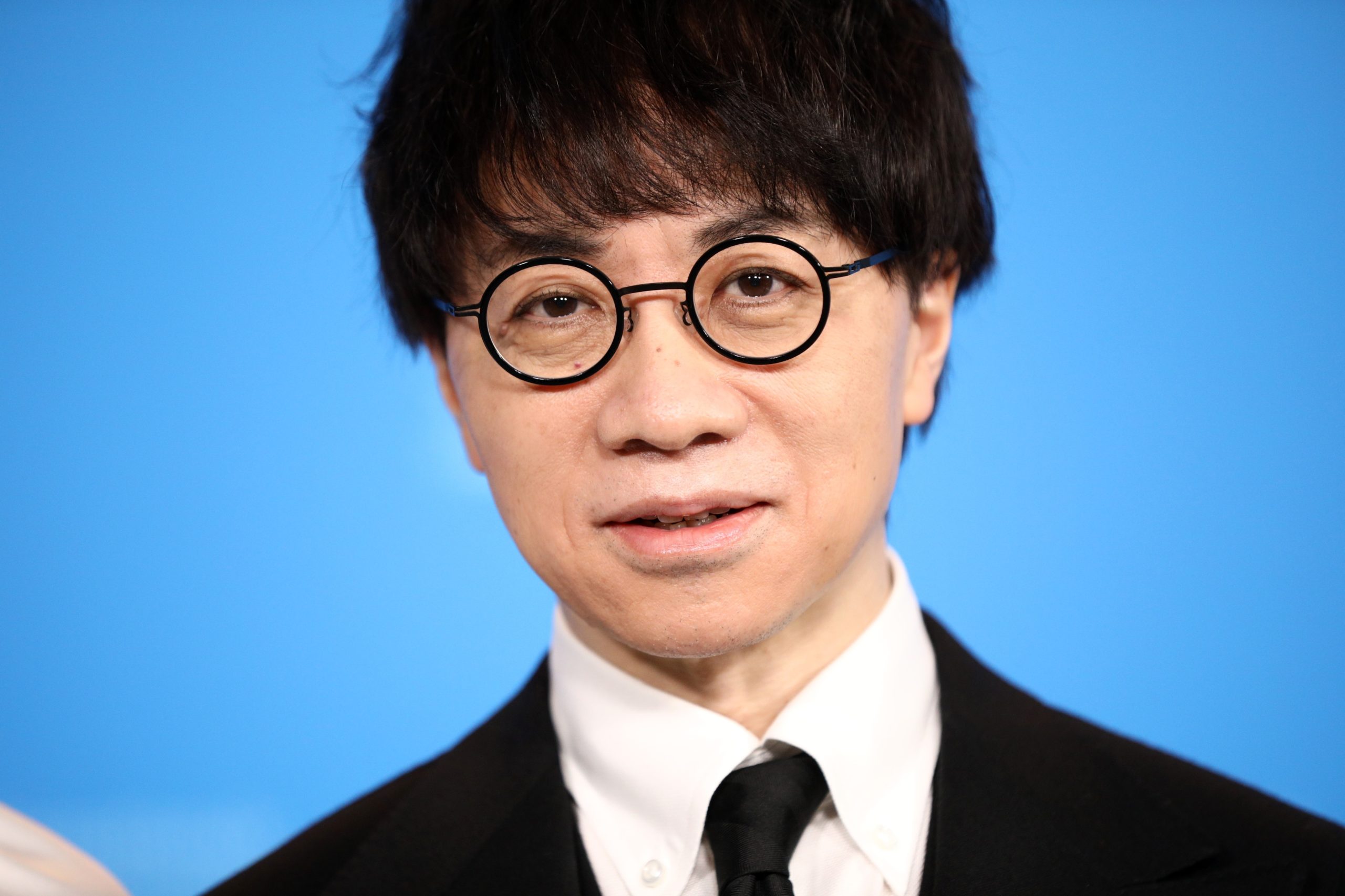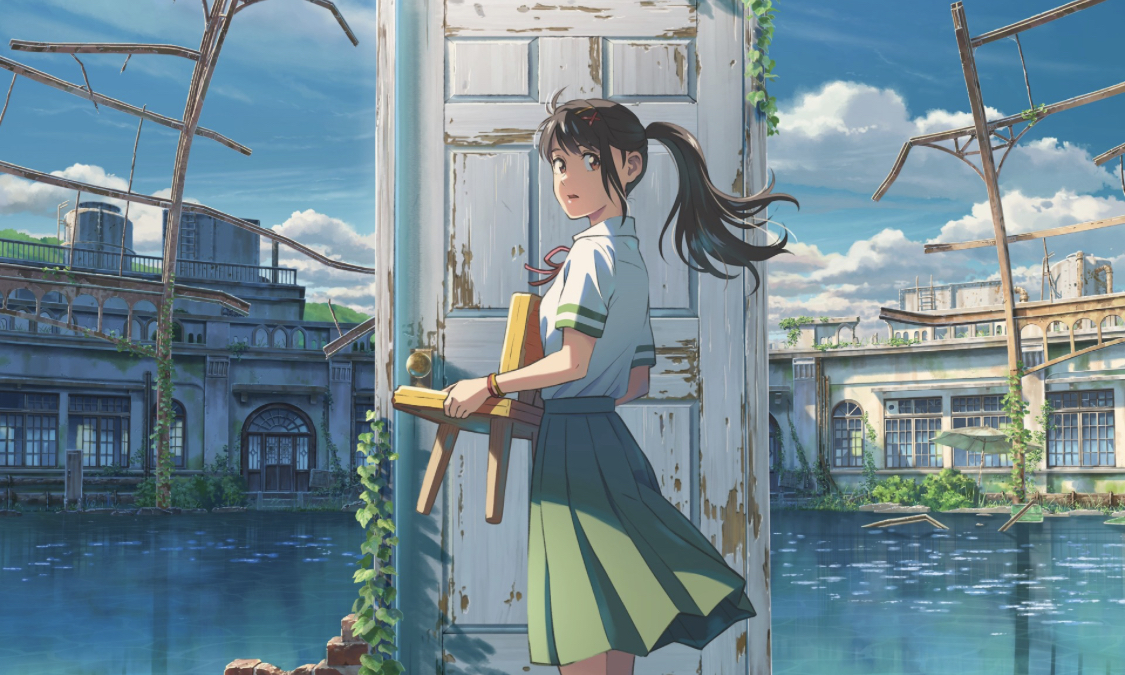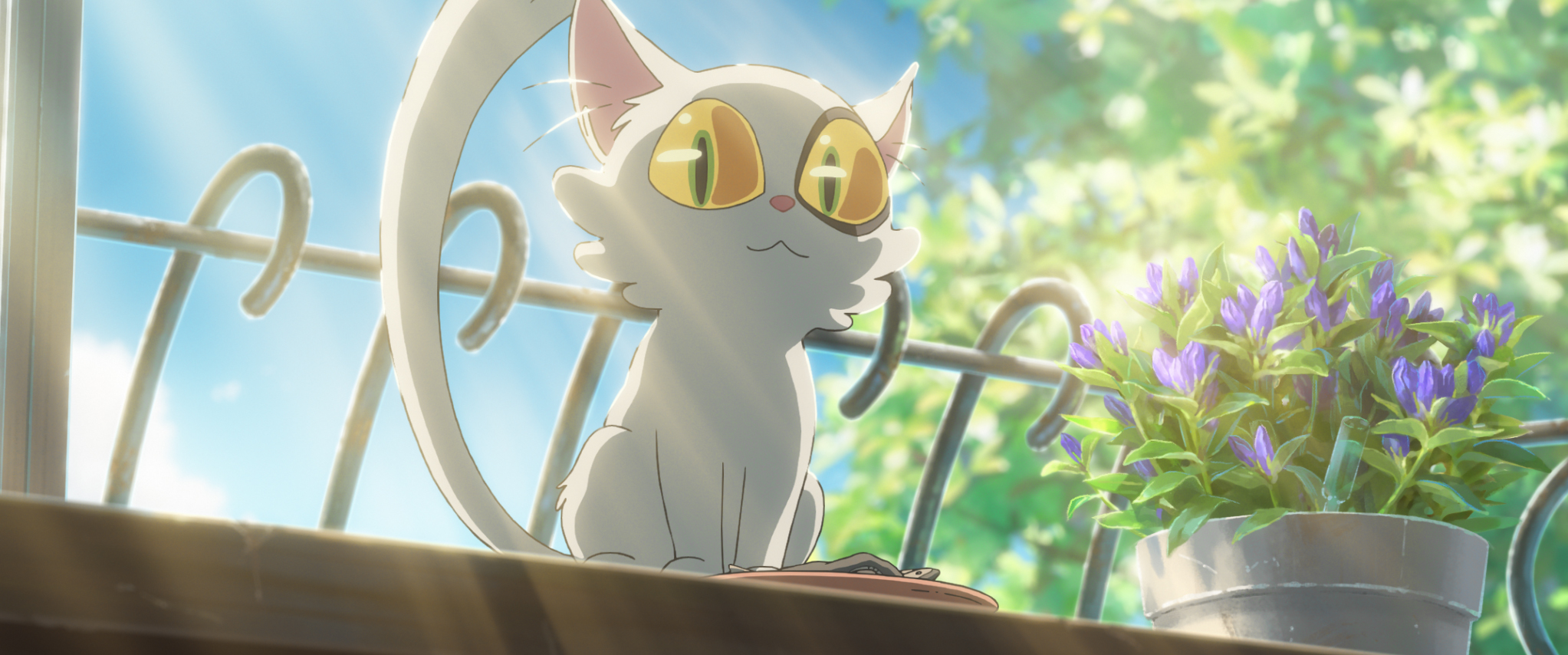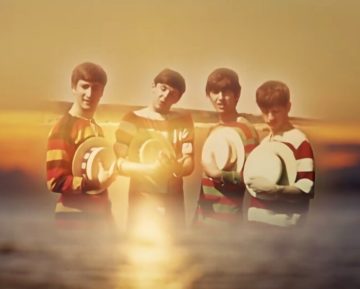
When you are granted an interview with Makoto Shinkai, it’s all business. An entourage looms large clutching clipboards and there’s a fastidious buzz that could jangle even the most seasoned journalist’s nerves. When the anime auteur finally enters the room, smartly bedecked in a black suit jacket and pristine white shirt, he is formal yet polite to a fault. The nerves settle, but the mood remains serious.
The revere surrounding the filmmaker is understandable. Shinkai’s star seems to be not so much on the rise but forever shooting beyond our orbit. He is the mercurial mind behind the dazzling Your Name and Weathering With You, and his latest, Suzume, is a further triumph.
Common consensus has long held that Shinkai is the heir apparent to Studio Ghibli co-founder Hayao Miyazaki. Like Miyazaki, his critical cachet is matched by box-office clout. Case in point: despite only being released in November, Suzume was the fourth highest-grossing film of 2022 in his native Japan. It has also become the highest-grossing Japanese film ever in China. Those are quite some statistics. Especially for a “controversial movie”, as he tells us by way of translator.

Credit: Sony Pictures Releasing
The action centres around the titular Suzume, a 17-year-old high school girl raised by her aunt in Kyushu after her mother was killed in the 2011 “Great East Japan Earthquake” (a true event which claimed the lives of almost 20,000 people). One day, Suzume meets a mysterious boy who is on a mission to close various “doors” – they are, in fact, portals to another dimension – to prevent Namazu (in Japanese mythology, Namazu was a giant catfish responsible for creating earthquakes, but the creature is re-cast here as a giant worm) from initiating disasters around Japan. Caught up in this boy’s quest, Suzume confronts her grief, her younger self, and finds a renewed sense of purpose in the process.
When tragedy struck the Tōhoku region in the northeast of Japan in 2011, Makoto Shinkai was nearly 300 miles away in Tokyo “making entertainment movies”. The nature of his work (“entertainment isn’t really necessary to survive,” he observes) and his remove plagued him. “I felt bad that I couldn’t do anything for the people in the affected region in the northeast,” he says. “And I’ve had that feeling for 12 years.” That feeling “drove” him to address the tragedy through his art. That’s where Suzume comes in. “There are a lot of people like Suzume who were directly affected in Japan. They lost their homes, their loved ones,” he explains.
He continues: “You have to keep in mind that this movie is very controversial in Japan. Some say I shouldn’t have made this movie, and some have even thanked me for making it.[But] by making this movie, I thought I could perhaps experience the things that Suzume and the teenagers her age experienced during that time, and I could understand it.
“There is a scene in the movie where Suzume says she’s not afraid to die, it’s just luck if you survive or not,” he adds. “And I think many people in Japan think like that and can relate to it because they experienced the same thing. As I was not directly affected by it, I feel a little ashamed. I can’t completely understand her. I was not in that position.” Shinkai’s hope is that Suzume enables wider Japanese society to take “a step towards” the victims of the 2011 earthquake and tsunami, and this may result in “a little more empathy” towards those who were affected by it.

Credit: Sony Pictures Releasing
Makoto Shinkai made his directing debut in 1998 at the age of 27 with the short, The World be Enclosed. His first feature arrived six years later, in 2004, with The Place Promised in Our Early Days. It was followed by anime hits such as 5 Centimetres per Second and The Garden of Words (subtly referenced Your Name as the name of the Italian restaurant, “Il Giardino delle Parole”). Commercial success ratcheted up incrementally with each release, before scaling new vertiginous heights with 2016’s romantic fantasy flick, Your Name, which went full-on, 24-karat blockbuster-gold by becoming the third highest-grossing anime film of all time in Japan (by way of context, Suzume is already hot on its heels, currently standing in tenth place).
It is an ascent that surely cannot go on forever. Certainly, Shinkai seems to think so. “I’m at the peak of my career,” he shares matter-of-factly. “I’m 50 years old now. My physical abilities are declining; so too my skills as an animation creator”. It is why he is pleased to have made Suzume now: at a time when his technical abilities and commercial currency are at their zenith. He believes the success of his previous films have made his well-intended exploration of the 2011 tragedy and Japan’s deep-rooted trauma around it possible.
While Shinkai might feel that an atrophy-of-sorts is starting to creep through his veins, he is far from finished. Future projects are “very open”, he says, though there are no plans in place for yet what his next film might be. “It’s a blank white paper, so I do not have any idea for the next project yet. I’m still searching for it.”
If his films say one thing about Makoto Shinkai: the man, aside from his wild imagination for retina-pleasing vistas and extravagant phantasmagorias, then it is his knack for diving into the profound, existential topics that haunt humanity. But if you derive that he is somehow spiritual, however, he is quick to quash the notion. “I would not say that I’m a spiritual person. Not at all,” he sniffs. “As you may know, we have many shrines in Japan, and people go there to make a wish. I’m not that kind of a person.”

Credit: Sony Pictures Releasing
Even so, if he were to wind back the clock, what advice would he give to the young Makoto Shinkai? He pauses for a moment. “I guess I would say something similar to what Suzume says to her younger self in the movie: that you may experience many hardships in your life, but you will be able to live on, you will be able to cope,” he offers. “You may not know what may happen, and there may be some disasters that you experience, but you will survive.”
A spiritual person or not, Shinkai’s wise words ring in the ears as we depart. This project may not have quite exorcised the guilt he has around the 2011 disaster, but his decision to consult a source of national grief through art has nevertheless been a brave one. And the answers he has found go beyond time, place, and specific events: they are timeless, borderless, and deep. “Suzume is the highlight of my career,” he states unequivocally. There’s a strong chance that he may well be right.
Suzume is in UK cinemas 14 April.




